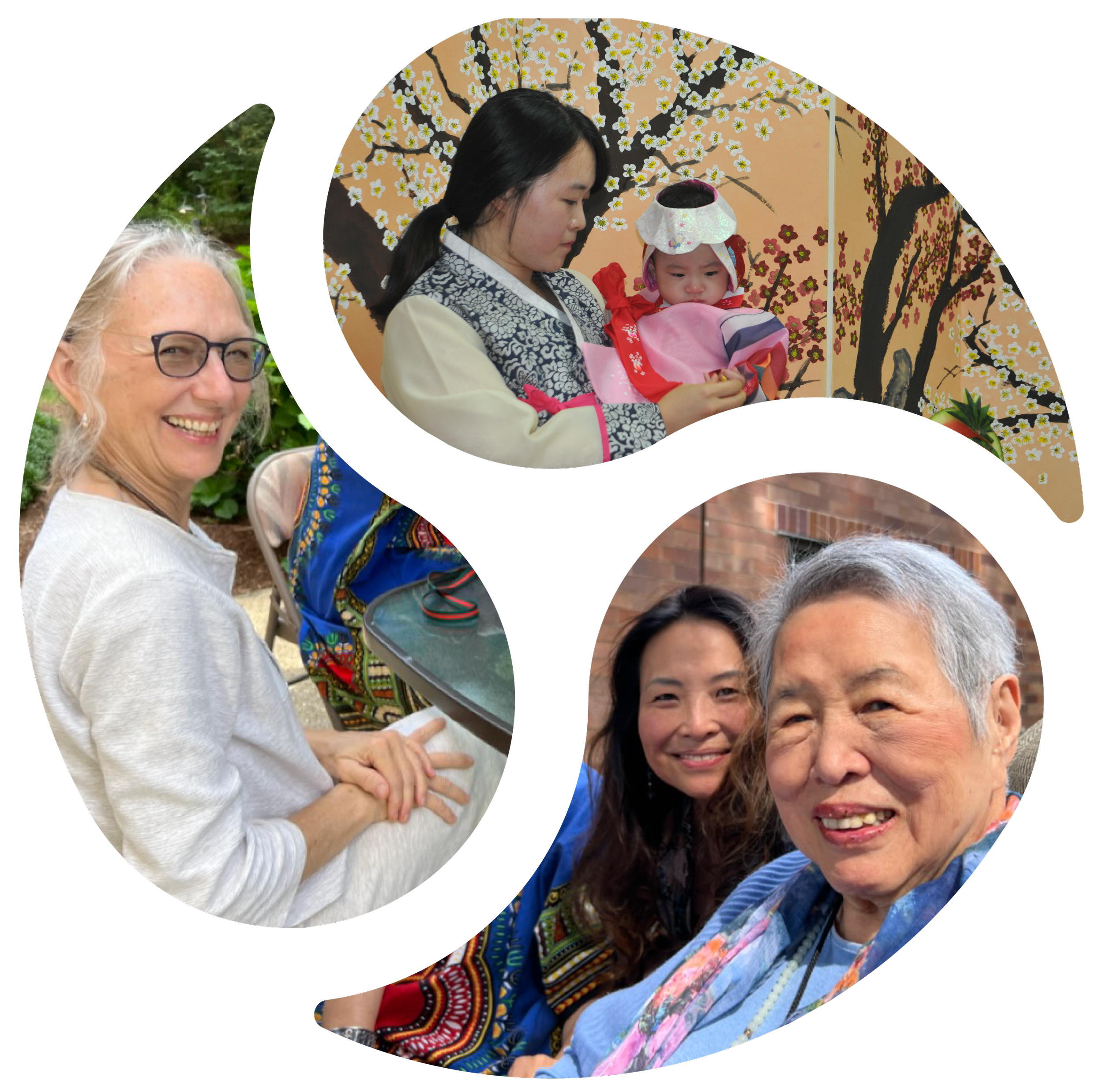A MULTIFACETED APPROACH TO CULTURE EDUCATION
Throughout our history, our programming has explored topics as varied as East Asian law, fashion, brush painting, fairy tales, and most recently, aging.
No matter the topic, we’ve never lost sight of the importance of helping those in a position to support the development of young Korean Americans—including parents, teachers and community leaders—to assert their cultural identity and multiple worldviews as they become leaders in their respective fields.
Across all our programs and events, there are several basic tenets that characterize and define the educational experiences designed and delivered by East Rock Institute.
Everything we do, we do in a cross-cultural context. We compare a perspective that is Korean, Korean American, or both to that of another—China, Japan, Vietnam, and many others. We firmly believe (and have proven repeatedly) that this kind of comparative exploration provides incredibly rich learning opportunities.
We dig deep to get at underlying cultural values. We are driven by the discovery, analysis and shared understanding of the underlying cultural values that explain a group’s behavior and point of view.
The best minds (with great hearts) generously work with us. We are fortunate to partner with a wide array of pre-eminent scholars and lead practitioners.
We gladly share our research. We continue to add to our archive of materials on Korean and Korean American studies, one of the largest in the Western hemisphere.
We welcome collaborations in advancing cross-cultural understanding and educational experiences. Email us.
TEACH KOREA CORP
Our Teach Korea Corp program offers a series of courses on Korean and Korean American culture to college professors, high school teachers and students of all ages.
Our interdisciplinary approach to cultural exploration is a rich tool to enhance knowledge of how Korea enriches East Asian and diaspora cultures and support the cultural-identity development of Korean Americans.
Sample Curriculum Topics

AUTHENTIC LEADERSHIP
We offer programming and resources to nurture among the next generation what our founder, Dr. Hesung Chun Koh, defined as “authentic leadership” that’s demonstrated by these common characteristics.
Seven Tenets of Authentic Leadership
-
In a multicultural society, one must know who he or she is, but remain keenly aware of the varied cultural backgrounds of others. If one possesses a clear sense of personal identity, he or she develops the confidence needed to lead a principled life.
-
To be a leader, one must have skills. To become an effective leader, one must realize that one’s skills should never overshadow one’s virtues.
-
Some believe that one can achieve self-fulfillment by focusing solely on the cultivation of his or her God-given talents. I would argue, however, that only after one learns to relate to his or her family and society at large, can he or she fulfill his or her role within a larger community and assume a leadership position within it.
-
In modern society, an authentic leader must have broad historical knowledge of many cultures. An authentic leader must also embrace differences that exist between his or herself and his or her followers. If one does so, one will be rewarded by trust. Others will recognize that he or she wants to understand their perspective and they will, in turn, open their minds to such an empathetic leader.
-
People of many ethnic backgrounds populate the world, and all have something to contribute. To create harmony among individuals of different cultures and maximize the benefits gained from diversity, one must integrate a variety of forces into a working whole. Intolerance is the biggest obstacle an authentic leader must overcome. Tolerance and flexibility, on the other hand, can be used to move forward as instruments for positive change.
-
The most admired leaders are those who follow their hearts as well as their heads. Attention to interpersonal skills and the cultivation of wholesome relationships are essential to achieving successful leadership.
-
A life lacking in purpose, also lacks in passion—a necessary component in the lives of those with a desire to lead. A life lacking in purpose, also lacks in passion—a necessary component in the lives of those with a desire to lead.
East Rock Institute has cultivated authentic leadership in a variety of ways, notably through our NamMae Conferences and Retreats for Korean American Young Professionals.
HEALTHY AGING
The most recent focus of our culture education efforts have been on healthy aging. We have participated at international conferences to present our research.
International Cross-Cultural Aging Initiative Conference in Changwon
Cross Cultural Competence in Senior Living: A Comparative View
Educational Panel: Cross Cultural Competence in Senior Living
Cross-Cultural Competence: Intercultural and Intergenerational Forum


